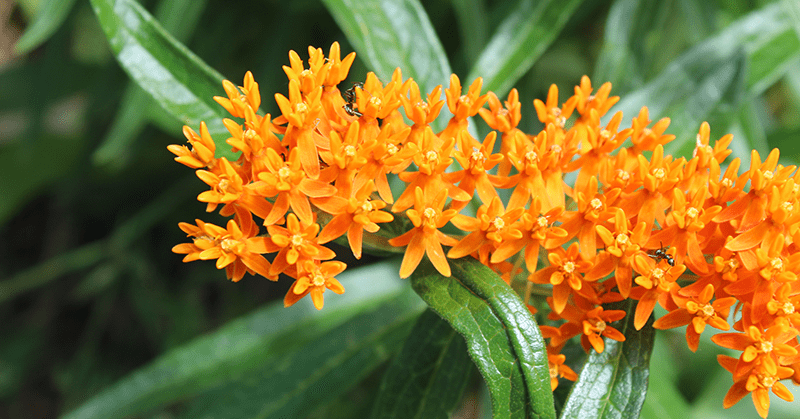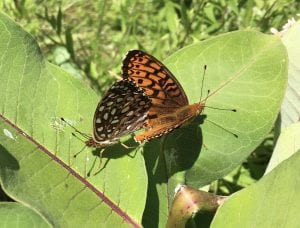
Happy summer! It’s late July, but don’t believe the hype about summer being mostly over. Ecologically, there are still three important months left of the growing and blooming season before we get to fall. Each of those months is special and important is its own way. July’s focus should be letting plants thrive while birds are feeding nestlings and fledglings.
Why insects?
Almost all birds you see on our feeders and around Maine yards depend on insects, especially native caterpillars, to feed their young. Most of those birds, including chickadees, hummingbirds, and cardinals, nest in early/mid summer, which is also why visits to our bird feeders slow down in July.
In your yard, you should be seeing and helping things grow. The right plants will attract the caterpillars baby birds need. However, even the wrong plants can still provide forage or nesting cover at least. Put the pruners down, grab some lemonade, and be on the lookout for signs of the birds and the bees.
What you can do at home
Your lawn can be a perfect example of beneficial practices in July. Let clover bloom and grass grow tall in at least a small patch of your yard. Watch what plants grow and how they go to seed. Watch the insects up close, and for other wildlife through a scope.
Need some inspiration? Visit Gilsland Farm or other Maine Audubon sanctuaries where meadows are enabled to grow tall and result in reliable species such as Bluebirds, Tree Swallows, turkeys, Bobolinks and other insect specialists.
NEW in 2019: Grown from seed by Maine Audubon
We have have just released our first batch of native plants grown from seed at Gilsland Farm, especially plants you’ll need for attracting and hosting Monarch butterflies. The latest list of what’s available for sale at the Gilsland Farm Nature Store includes:
- Monarda fistulosa*
- Asclepias incarnata*
- Asclepias tuberosa*
- Eupatorium maculatum*
- Chelone glabra
- Solidago sempervirens
- Solidago caesia
- Symphyotrichum novae-angliae
- Symphyotrichum laeve
*Great for attracting and hosting Monarch butterflies


